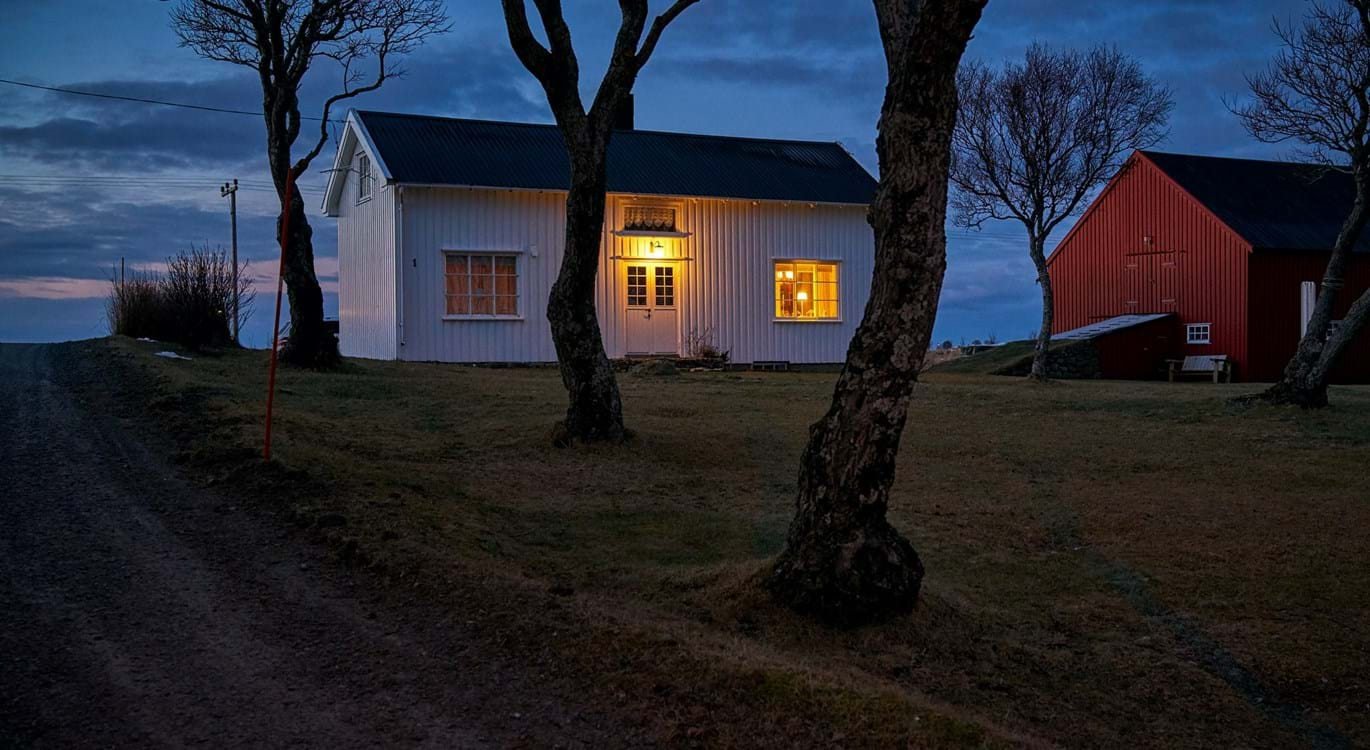It’s cold outside. The snowy darkness is softened by the slip of a moon, and the million stars. Down the lane is the soft glow of home. The lights shine through the windows, beckoning. The door says welcome. We know there is warmth in there. There is love. There is rest and comfort. What is this place? What is this longing? Is this the call of “home”?
Home. The very word evokes longing. Deep parts of us respond to the concept. What is it about the idea of home that God has put in our hearts and uses to woo us, to comfort us, to give us hope and security?
In a fallen world, where home is not always what He intended it to be, God gives us an accurate portrait of what constitutes a home by telling us of the homes that He has prepared for us, and giving us detailed plans and accounts of His earthly dwelling among us. We find that, in Eden (see Genesis 2-3), a home was intended to provide for our every physical and spiritual need. Here there was nourishment and purpose and communion. In the tabernacle, God was demonstrating his desire to be with us, meeting our need for fellowship (Exodus 25:8). The temple was a showcase of beauty and glory, and a gathering centre to draw everyone together (2 Chronicles 5-7, 1 Kings 8). The home in Luke 15 is inseparably linked to the father who lived there, ever patient as he hoped for the joyous return of his prodigal son – the final resting place after a long and winding journey. And the Lord Jesus referenced a home that he was going to prepare for his own (John 14). A prepared place, a sanctuary, a hope for them in the midst of all their earthly troubles. Revelation outlines the heavenly city that God has prepared for those who have been redeemed by the blood of Christ (Revelation 21). This will be the ideal home that goes on forever, and provides the ultimate in security, belonging, rest, and love, because these are all found in Him and He is the focus and object of the hearts of those that find themselves there. It is not hard to see that God knows exactly what an ideal home entails. The Maker of Heaven and Earth is our Maker as well, and He knows the exact ingredients a home needs in order to meet our deepest needs.
If we found ourselves in just such a home, would we ever want to leave? God, who invites us who are saved to call him Father, and abide in Him as the satisfaction and fulfillment of all our needs, knows only too well that, despite his provision and love and care, our hearts can stray from this spiritual centre, this home we find in Him. Knowing the security and safety of this spiritual home, we can wonder what else is out there. We can chafe under our responsibilities and obligations. We can be duped into thinking that abiding in this home is too restricting, too close, not exciting enough. The son in Luke 15 refers primarily to a lost sinner who, though he has knowledge of his Creator and has taken His goodness and provision for granted, has no interest in having a relationship with Him. He is determined to take what he can and pursue his own way. However, we who are saved can apply this to ourselves when we, like him, find ourselves setting out to find satisfaction elsewhere, breaking our Father’s heart, and upsetting our communion and connection with Him and all that is truly home. We might set out undervaluing what we leave behind. Since it is what we already know, we wonder if it’s really so special. Surely there’s fun and happiness to be had elsewhere that doesn’t require obedience and faith. Instant gratification should replace what we’re turning our backs on, right?
It is not long, though, before we find that we are much like the prodigal son in Luke 15, who finds that, rather than replacing the ideal home of his father’s providing, his current situation is a pigpen of want that makes life smelly and leaves his stomach rumbling. Despite knowing deep within himself that there is something better, something else, he has chosen to live in the far country in hopes that the pleasure and wealth and friendship of the crowds will fill the void that leaving home and father has made in his heart. It is only when he takes an objective look at the filth, the loneliness, the hunger, and the desperation of his plight, that he remembers with clarity his father – his good father – who knows how to treat even the servants in his home much better than he has treated himself. This lack, which is so severe that it cannot be denied or ignored any longer, serves to turn his thoughts longingly toward a father and a home. And what is associated with both of these images? Bread enough and to spare, love and acceptance, responsibility and security, a place of permanence and safety with someone who longs for him just as he is, in order to transform him into something better. But he is unsure . . . is the door still open? Surely no one could want him anymore? His decisions and actions to live in this desperate way have surely pushed him past the point of no return. But maybe . . . maybe if he didn’t expect to be a son in the home anymore, maybe a heartfelt apology could secure him a place in the house as a servant? When he considered his plight, he knew that he had nothing to lose. It was worth a try.
If we look objectively at our state when we choose to turn away from God to seek our own way, we too find that we are in want. There are gaping holes in our armour. The security, belonging, acceptance, love, provision, and fulfillment we crave, is simply not to be found in the pigpen that is life apart from God. Living at a distance from God and our true home and country has allowed us to try the stopgap measures of the world – career, wealth, status, social circles, education, altruism, sport, entertainment – and we must find at some point, that this is not enough. What we need, what we are actually seeking, is the home and the Father we left behind. And He waits for us there, straining to see if we will come back to Him. The problem is that we can hardly believe He could want us in our desperate plight. So many mistakes, so many failed attempts at happiness, so much baggage that’s smelly and heavy and shameful. Would He really take us back, and all this?
But as the prodigal son discovered when he was still a long way off, the answer is a resounding yes! God is longing for you just as you are, in your sorry state, and he is not interested in welcoming you back to a second-rate existence. When you come as you are, fully aware of your dire need and admitting your sin, He fills in all the blanks. Off with the stinking rags, and on with the clean clothes of His providing! Gone that feeling of shame, swallowed in the embrace of acceptance! Not the lecture, but the party . . . a celebration that a loved and longed for child has been recovered! The rumbling stomach traded for the endless provision, the feeling of hopeless desperation giving way to the enjoyment of the security and love of an unending relationship! There is nothing to improve on. The father’s home has everything that was lacking in the far country! This is a homecoming to remember! This is just the beginning of sharing in a bounty that never ends!
All that the prodigal son came to experience at the hands of his patient and longing father in the place that he knew was home, is offered to us as well. God has extended the invitation to us who have strayed, to us who have failed. He says, ‘Don’t wait, come home’. He is patiently waiting in the same posture – with longing – for you to come back home. His prepared home is just exactly what you long for, and He is that Father that provides and fills that home with acceptance and love and the surprise of a completely fresh start in a place of provision and care. He’s waiting . . . you’re longing . . . won’t you come home?
Image Source: Unsplash





























